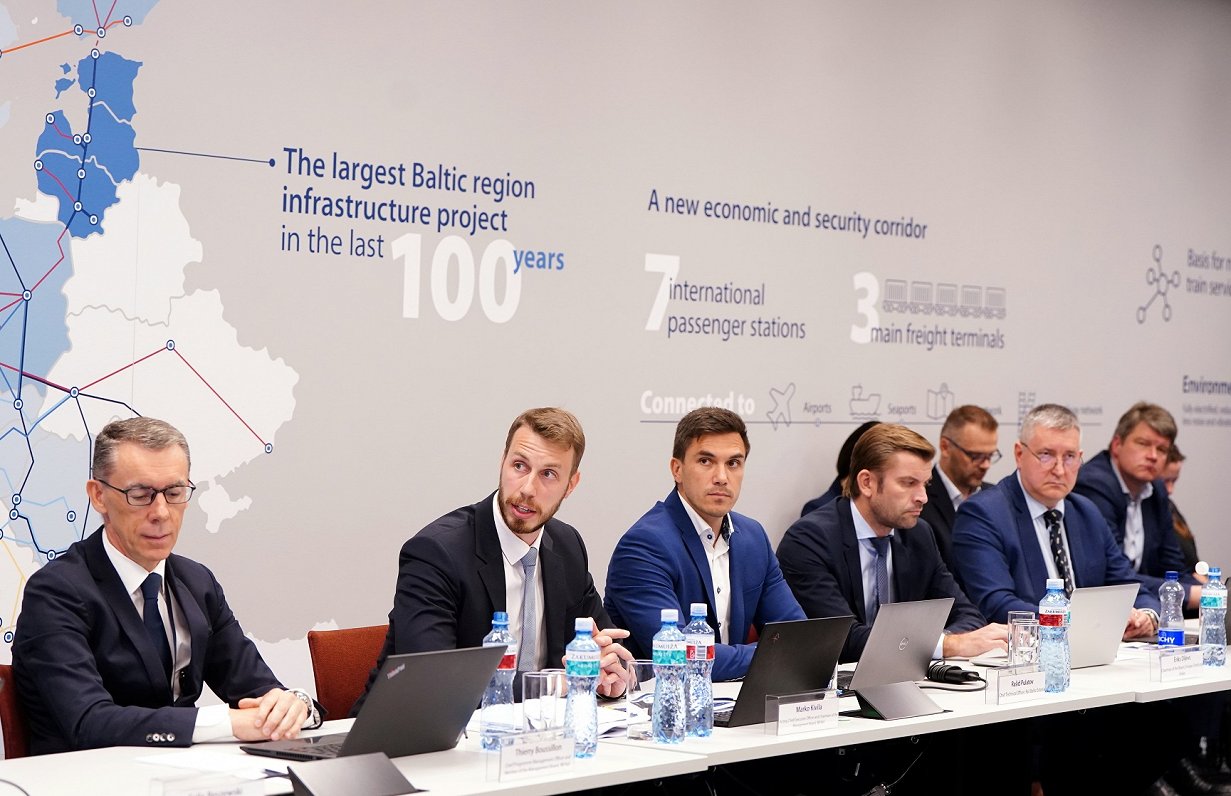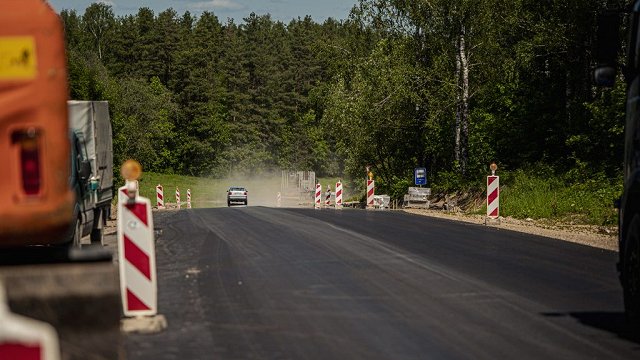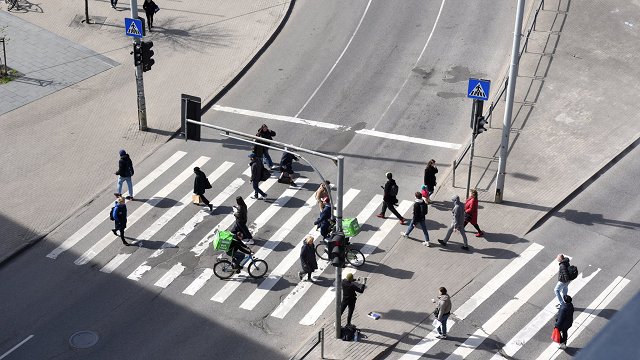"The implementation cost of the first project phase, which aims to build an operational Rail Baltica line across the three Baltic states connecting to Poland by 2030, is estimated to reach 15.3 billion EUR," said a release from RB Rail, the joint venture responsible for the project, which originally had a price tag of 5.8 billion euros.
RB Rail was doing its best to stress that despite the massively inflated price, the project remains economically and financially viable, in a presentation to the media of the new outlook.
"The findings of the updated Cost-Benefit Analysis suggest that Rail Baltica is economically viable and is expected to generate GDP growth from 0.5% to 0.7% contributing 15.5 to 23.5 billion EUR to the GDP of the Baltic states, which is considered indirect benefits, and it will also additionally have a direct economic net benefits value of 6.6 billion EUR. The related broader economic benefits include military mobility, environmental sustainability, social equality, corridor synergies, and supply chain impacts," said RB Rail.
Nevertheless, the new figure is likely to cause consternation among politicians, who will now have the task of deciding how much extra cash they are willing to find to fund the troubled project – and justifying their decisions to both Baltic taxpayers and the European Commission, which is providing the bulk of the financing.
Explaining the massive price hike, RB Rail pointed to several factors, including – but not limited to – higher-than-expected inflation.
"The Rail Baltica Cost-Benefit Analysis values from 2017 were adjusted for inflation between 2017 and 2022, considering an inflation rate of 40% in the Baltic States during this period. The rise in cost is also attributed to the following factors: 31% of the increase resulted from higher cost predictions due to scope project increase between 2017 and 2023, which included additional regional mobility connections, changes in technical standards according to unified design guidelines, and enhancements in safety and performance. 51% of the increase was due to more accurate data for costs due to design advancement from value engineering level to master design. 18% was due to additional external requirements and factors such as third-party requirements, various institutional technical regulations, interoperability technical specifications, and other changes," said RB Rail.
In an attempt to present the project as still representing relatively good value for money, the statement added:
"According to the Cost-Benefit Analysis study, Rail Baltica's cost is estimated at 26 million EUR per kilometer. Studies have shown that for similar high-speed rail projects in Europe, the average cost per kilometer is 24 million EUR and might reach up to 35 million EUR per kilometer."
The exact studies demonstrating this were not cited in the release.
However, seeing Rail Baltica through to total completion will cost even more, RB Rail admits. The 15.3 billion euro price tag is only for the first phase of the project, up to 2030. A second phase of the project, "might reach up to 23.8 billion EUR according to estimates. This phase is essential to fully realize the socio-economic potential of the Rail Baltica corridor," said RB Rail, which added that it is "exploring other alternative funding strategies and sources."






























